- Cutting Board Wax vs Oil: Which is Better for Your Cutting Board?
Cutting boards are Improtant tools in any kitchen. They are used for chopping vegetables, slicing fruits, and cutting meats. However, to keep a cutting board in good condition, it needs proper care. Two popular ways to care for cutting boards are by using wax or oil. But which one is better? In this article, we…
- Acacia vs Walnut Cutting Board: Which one best for Your Kitchen?
Wooden cutting boards are essential tools in every kitchen. However, when it comes to choosing the right cutting board, it can be confusing because you may not know which type is best for you and easiest to use. Acacia vs Walnut are popular options, but they are not the same. Each type comes with its…
- Is End Grain Better for Cutting Boards
Cutting boards are one of those kitchen essentials that most of us don’t think twice about until it’s time to buy a new one. With so many options out there, you might find yourself wondering: is end grain better for cutting boards? Whether you’re a seasoned chef or someone who just loves to cook at…
- Is Mahogany Good for Cutting Boards?
When it comes to choosing a cutting board, the material matters just as much as the size and shape. If you’ve ever stood in the kitchen aisle of a store, staring at a row of wooden cutting boards, you might have asked yourself: “Is mahogany good for cutting boards?” It’s a fair question, considering the…
- Is Ash Wood Good for Cutting Boards? Pros and Cons for Kitchen Use
Selecting the perfect wood for a cutting board is not just important to the overall appearance, but its ability and longevity. A good cutting board will be tough, easy on your knives, and bacteria resistant. In a category full of incredible wood options, ash wood is just in its own class altogether thanks to the…
- Teak vs Acacia Cutting Board: Which Is the Best Choice for Your Kitchen?
Choosing the right cutting board is an important decision for any kitchen. A cutting board is used almost every day, whether you’re chopping vegetables, slicing bread, or cutting meat. Teak and acacia are two types of wood commonly used to make cutting boards. Both of them are strong and durable, but each has its own…
- Walnut vs Maple Cutting Board: Which One Best For You?
Choosing the right cutting board can be tricky, especially when faced with options like walnut and maple. Both are top choices for cutting boards, but which one is best for your kitchen? Walnut cutting boards have a reputation for their luxurious look and smooth texture, while maple is famous for its toughness and light color….
- Is Purple Heart Good for Cutting Boards
When it comes to cutting boards, people often wonder what type of wood is the best choice. A good cutting board needs to be durable, safe, and easy to clean. One type of wood that many people are curious about is Purple Heart. This wood is known for its beautiful purple color, but is it…
- Are Acrylic Cutting Boards Safe?
Cutting boards might be the unsung heroes of the kitchen. They take all the heat, literally and yet, we often don’t give much thought to the material they’re made from. But as you slice your veggies or chop raw meat, have you ever paused and wondered: Is my cutting board actually safe? When it comes…
- Are Bamboo Cutting Boards Non-Toxic?
Bamboo cutting boards have become a popular kitchen tool in many homes, but a question that often pops up is: Are bamboo cutting boards non-toxic? With a growing focus on sustainability, eco-friendly materials, and food safety, it’s important to explore whether bamboo boards fit the bill. Let’s dive into the world of bamboo cutting boards…
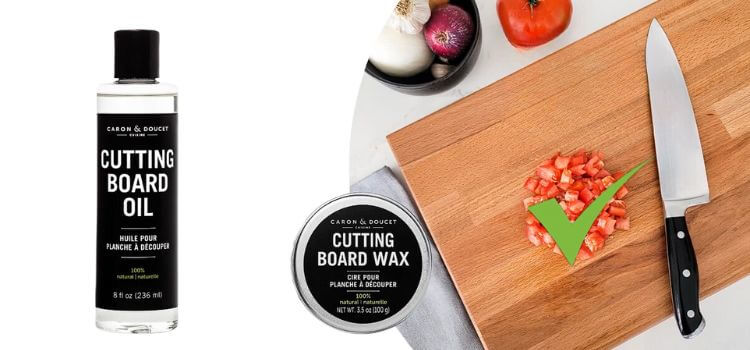 Cutting boards are Improtant tools in any kitchen. They are used for chopping vegetables, slicing fruits, and cutting meats. However, to keep a cutting board in good condition, it needs proper care. Two popular ways to care for cutting boards are by using wax or oil. But which one is better? In this article, we…
Cutting boards are Improtant tools in any kitchen. They are used for chopping vegetables, slicing fruits, and cutting meats. However, to keep a cutting board in good condition, it needs proper care. Two popular ways to care for cutting boards are by using wax or oil. But which one is better? In this article, we…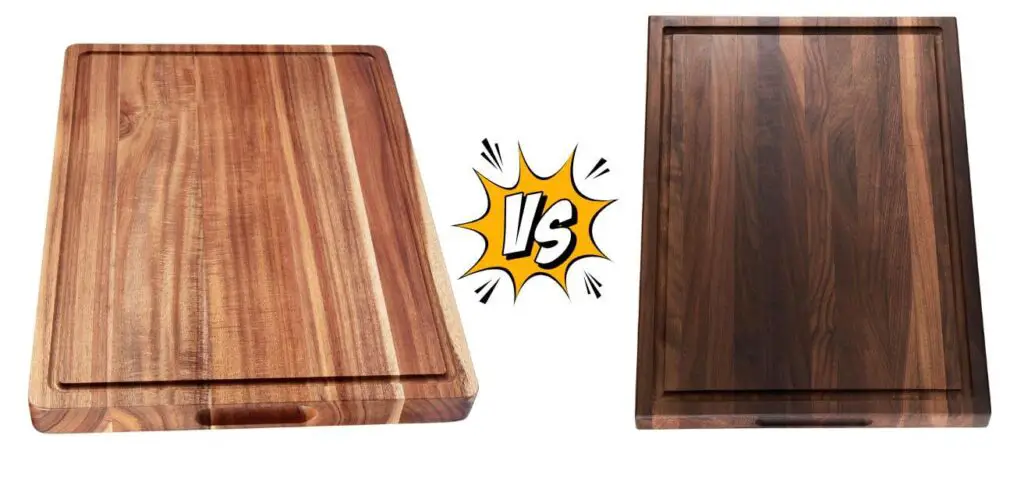 Wooden cutting boards are essential tools in every kitchen. However, when it comes to choosing the right cutting board, it can be confusing because you may not know which type is best for you and easiest to use. Acacia vs Walnut are popular options, but they are not the same. Each type comes with its…
Wooden cutting boards are essential tools in every kitchen. However, when it comes to choosing the right cutting board, it can be confusing because you may not know which type is best for you and easiest to use. Acacia vs Walnut are popular options, but they are not the same. Each type comes with its…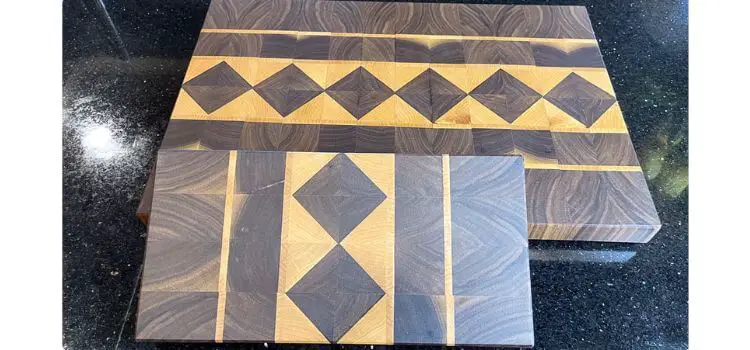 Cutting boards are one of those kitchen essentials that most of us don’t think twice about until it’s time to buy a new one. With so many options out there, you might find yourself wondering: is end grain better for cutting boards? Whether you’re a seasoned chef or someone who just loves to cook at…
Cutting boards are one of those kitchen essentials that most of us don’t think twice about until it’s time to buy a new one. With so many options out there, you might find yourself wondering: is end grain better for cutting boards? Whether you’re a seasoned chef or someone who just loves to cook at…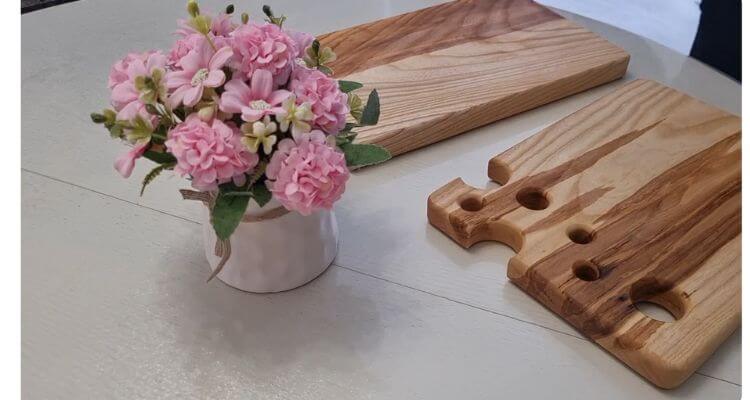 Selecting the perfect wood for a cutting board is not just important to the overall appearance, but its ability and longevity. A good cutting board will be tough, easy on your knives, and bacteria resistant. In a category full of incredible wood options, ash wood is just in its own class altogether thanks to the…
Selecting the perfect wood for a cutting board is not just important to the overall appearance, but its ability and longevity. A good cutting board will be tough, easy on your knives, and bacteria resistant. In a category full of incredible wood options, ash wood is just in its own class altogether thanks to the…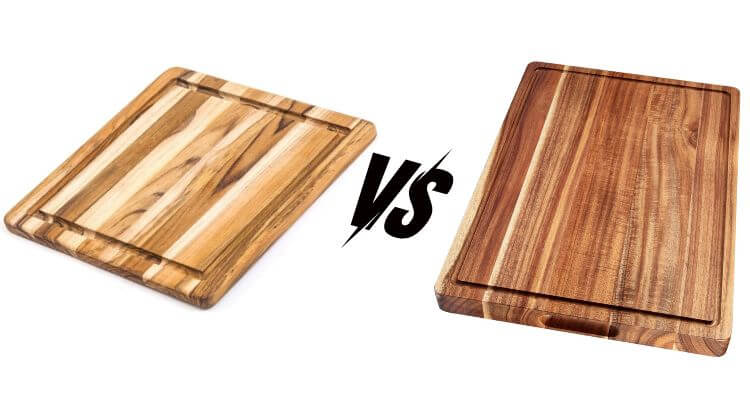 Choosing the right cutting board is an important decision for any kitchen. A cutting board is used almost every day, whether you’re chopping vegetables, slicing bread, or cutting meat. Teak and acacia are two types of wood commonly used to make cutting boards. Both of them are strong and durable, but each has its own…
Choosing the right cutting board is an important decision for any kitchen. A cutting board is used almost every day, whether you’re chopping vegetables, slicing bread, or cutting meat. Teak and acacia are two types of wood commonly used to make cutting boards. Both of them are strong and durable, but each has its own…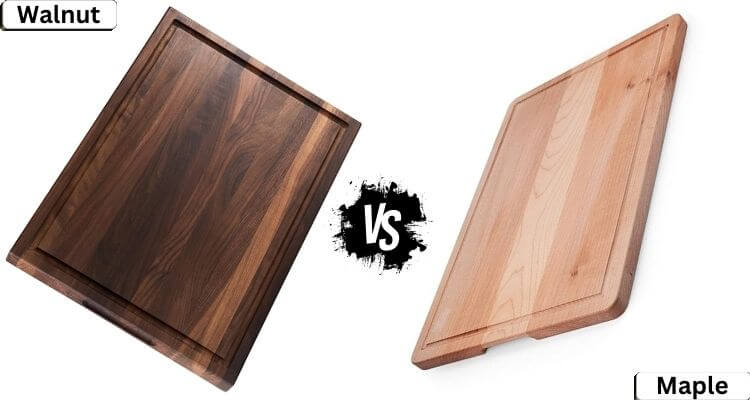 Choosing the right cutting board can be tricky, especially when faced with options like walnut and maple. Both are top choices for cutting boards, but which one is best for your kitchen? Walnut cutting boards have a reputation for their luxurious look and smooth texture, while maple is famous for its toughness and light color….
Choosing the right cutting board can be tricky, especially when faced with options like walnut and maple. Both are top choices for cutting boards, but which one is best for your kitchen? Walnut cutting boards have a reputation for their luxurious look and smooth texture, while maple is famous for its toughness and light color….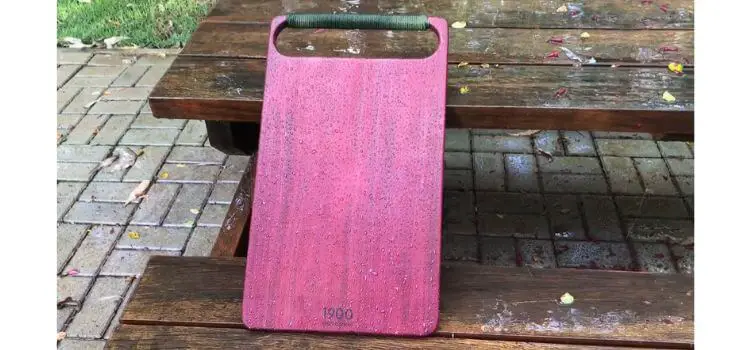 When it comes to cutting boards, people often wonder what type of wood is the best choice. A good cutting board needs to be durable, safe, and easy to clean. One type of wood that many people are curious about is Purple Heart. This wood is known for its beautiful purple color, but is it…
When it comes to cutting boards, people often wonder what type of wood is the best choice. A good cutting board needs to be durable, safe, and easy to clean. One type of wood that many people are curious about is Purple Heart. This wood is known for its beautiful purple color, but is it…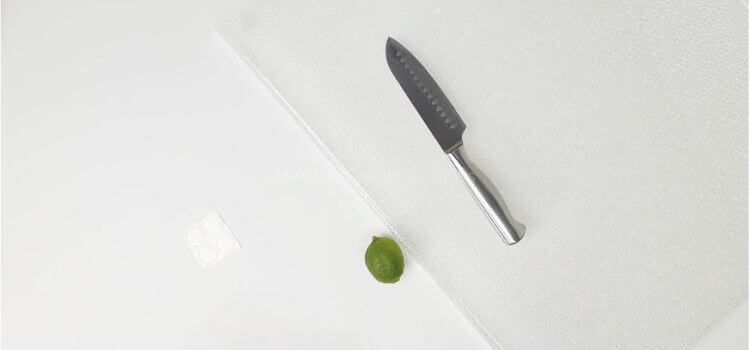 Cutting boards might be the unsung heroes of the kitchen. They take all the heat, literally and yet, we often don’t give much thought to the material they’re made from. But as you slice your veggies or chop raw meat, have you ever paused and wondered: Is my cutting board actually safe? When it comes…
Cutting boards might be the unsung heroes of the kitchen. They take all the heat, literally and yet, we often don’t give much thought to the material they’re made from. But as you slice your veggies or chop raw meat, have you ever paused and wondered: Is my cutting board actually safe? When it comes…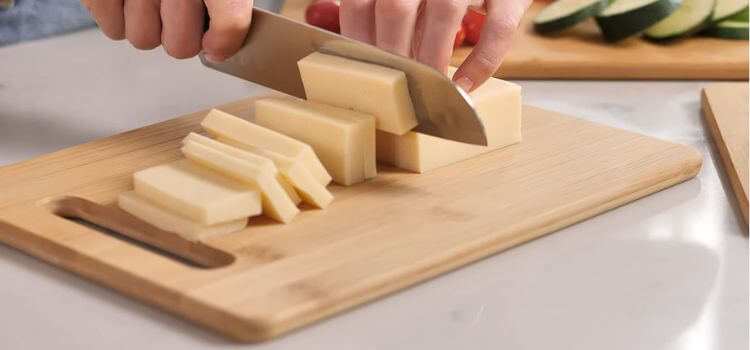 Bamboo cutting boards have become a popular kitchen tool in many homes, but a question that often pops up is: Are bamboo cutting boards non-toxic? With a growing focus on sustainability, eco-friendly materials, and food safety, it’s important to explore whether bamboo boards fit the bill. Let’s dive into the world of bamboo cutting boards…
Bamboo cutting boards have become a popular kitchen tool in many homes, but a question that often pops up is: Are bamboo cutting boards non-toxic? With a growing focus on sustainability, eco-friendly materials, and food safety, it’s important to explore whether bamboo boards fit the bill. Let’s dive into the world of bamboo cutting boards…